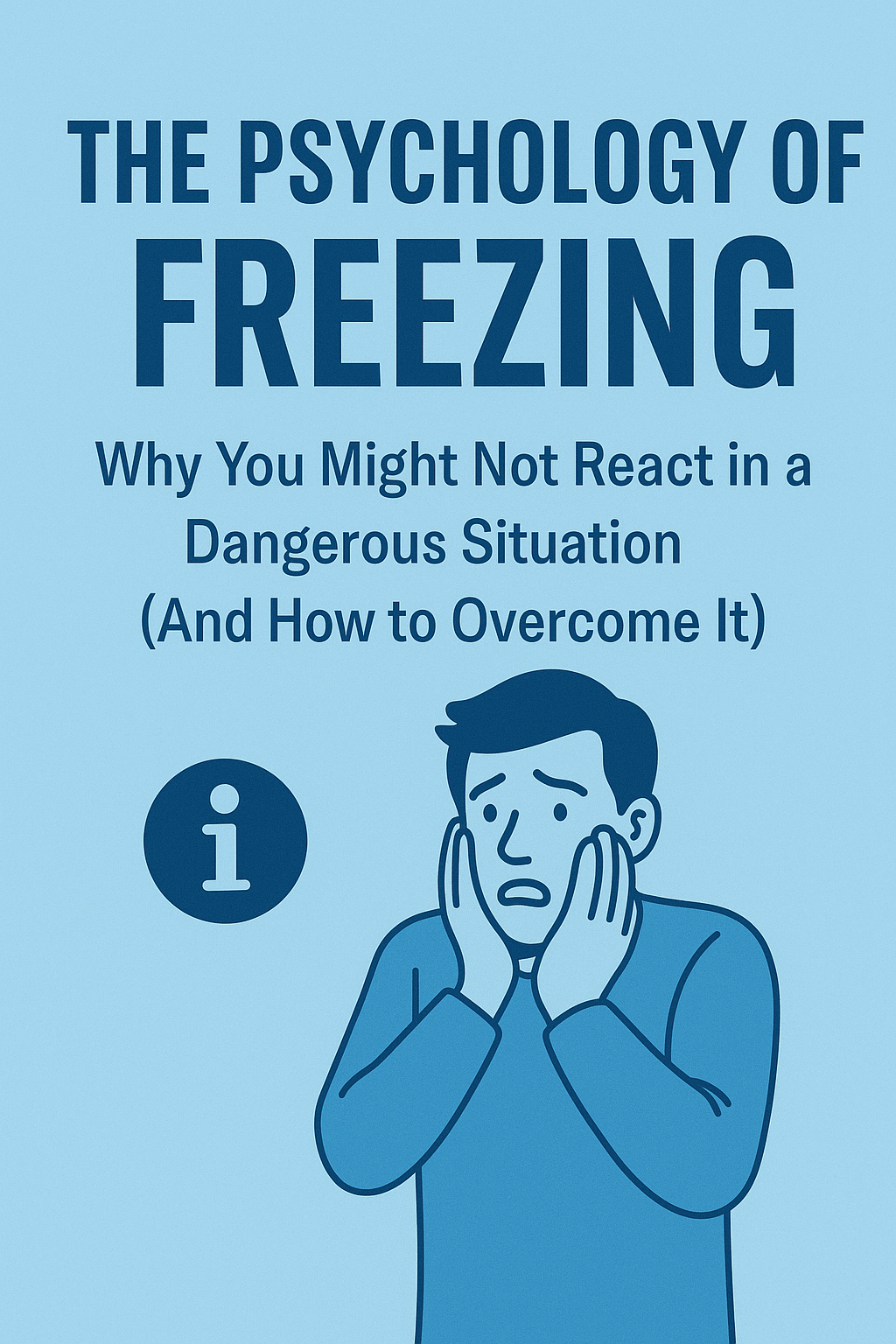
The Psychology of Freezing: Why You Might Not React in a Dangerous Situation (And How to Overcome It)
It's Not Weakness—It's Biology
In countless real-life incidents, people say: "I just froze."
This isn’t rare—and it’s not a sign of cowardice. It’s a hardwired survival response. Understanding the psychology behind freezing can help you overcome it and respond effectively when it matters most.
⚠️ What Is the Freeze Response?
When your brain detects a threat, it typically chooses one of three options: fight, flight, or freeze. Freezing is your body’s way of pausing to assess danger or avoid detection.
❄️ It can feel like your brain shuts down and your body stops responding.
🔬 Why We Freeze: The Science Behind It
-
Amygdala overload: The brain's fear center floods your system with stress signals.
-
Nervous system imbalance: The sympathetic and parasympathetic systems clash.
-
Evolutionary wiring: Animals freeze to avoid being seen—humans retained this instinct.
🧍 When Freezing Becomes Dangerous
In self-defence situations, freezing can leave you vulnerable when quick action is needed. Even a few seconds of hesitation can change the outcome.
🛠️ How to Train Your Brain to React Instead of Freeze
Here’s how to reduce the freeze response with training and mindset shifts:
1. Scenario Drills
Practice realistic threat simulations with a partner or instructor. The more your brain sees the scenario, the less likely it is to freeze.
2. Verbal Responses First
Start with vocal commands like “Back off!” to engage your brain and break the freeze loop.
3. Stress Inoculation
Train under pressure—sparring, timed drills, or chaotic environments—so your body gets used to making decisions under stress.
4. Visualization
Mentally rehearse situations (e.g., being approached aggressively) and visualize yourself reacting with control and confidence.
5. Breathing Control
Slow, deep breaths (even in panic) can reset your nervous system and bring clarity fast.
💡 The Power of Preparedness
Just knowing freezing is normal removes some of its power. Training turns reaction into instinct. With time and repetition, you condition your brain to respond rather than shut down.
🧠 “Train like your life depends on it—because one day, it might.”



